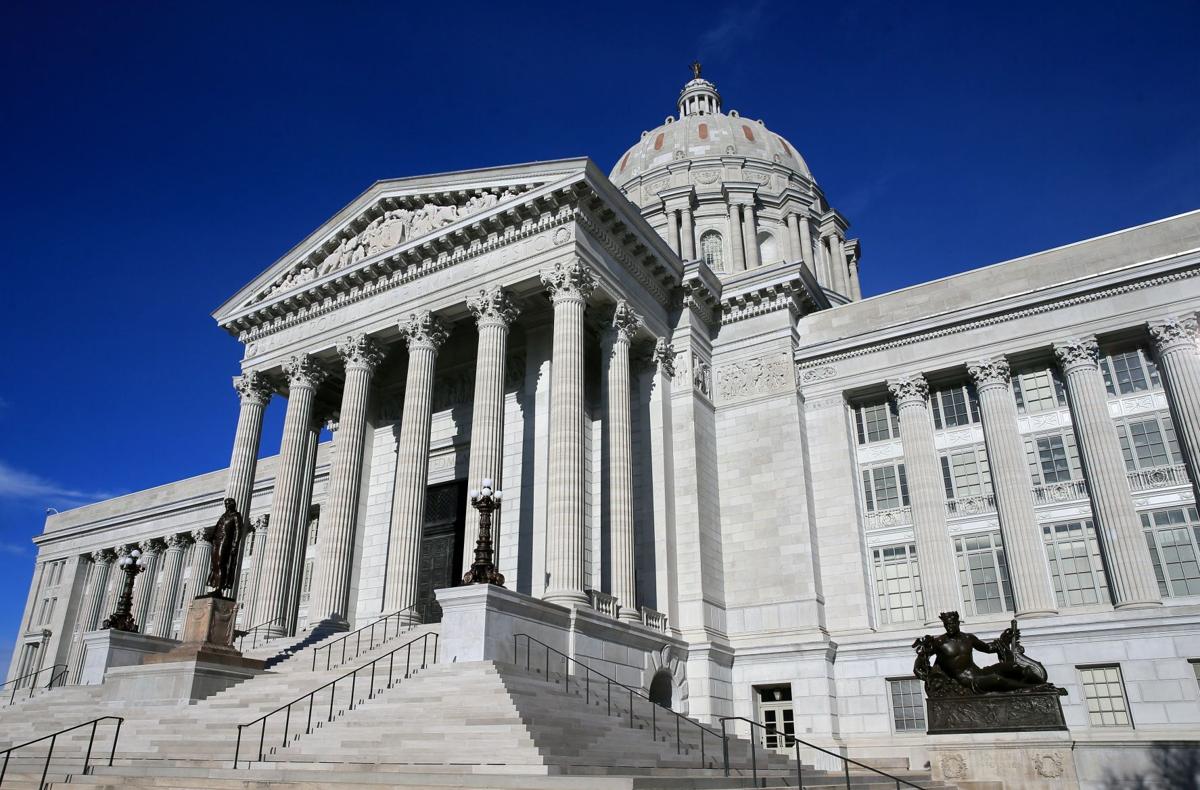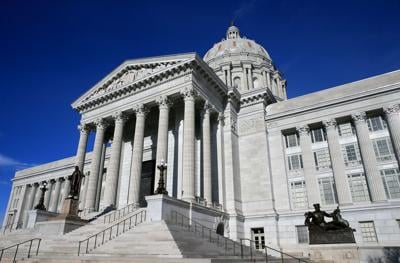JEFFERSON CITY ŌĆö Budget writers in the Missouri Senate began a four-week slog Tuesday aimed at hammering out a deal on the stateŌĆÖs $52 billion proposed budget.
With a month to go before it is due on Republican Gov. Mike KehoeŌĆÖs desk, the Senate Appropriations Committee launched a series of hearings that could result in some changes to the blueprint approved earlier by the House.
Among changes on tap in the upper chamber is a plan to fully fund the school foundation formula, which Kehoe has acknowledged his plan falls about $300 million short of projections made by state school officials.
People are also reading…
Senate Appropriations Committee Chairman Lincoln Hough, R-Springfield, said the increased cost is due to last yearŌĆÖs passage of a sweeping education measure.
ŌĆ£If weŌĆÖre going to pass legislation ... we should probably pay the bill when it comes due,ŌĆØ Hough said.
None of the committee members objected to the change.
The Senate plan also restores a salary increase for state workers. The governor had sought up to 10% wage hikes for employees with 20 years of experience to entice workers to stay on the job. The House version cut the request in half. If KehoeŌĆÖs plan is adopted, it will cost an additional $129.9 million.
The Senate also will consider whether to fund KehoeŌĆÖs controversial plan to spend $50 million to jump-start the stateŌĆÖs private school voucher program, a Republican-backed school choice initiative originally designed to run on volunteer contributions and tax credits, not general revenue.
The move to address spending in the fiscal year beginning July 1 comes against a backdrop of flattening tax revenues.
A surplus built up to more than $6 billion by several years of a massive infusion of federal pandemic aid will drop to about $2 billion under the House plan.
Also looming over the package are possible tax cuts being mulled by Republicans who control the Missouri Legislature, potentially lowering state revenues by an additional $300 million.
And, lawmakers must account for the possibility of federal budget cuts by the GOP-controlled Congress and President Donald Trump.
Federal dollars for MissouriŌĆÖs Medicaid and food programs could drop by $2 billion under a budget resolution approved by congressional Republicans in February, according to a report from the Commonwealth Fund and George Washington University.
Any type of decrease in the MO HealthNet health insurance program would have to be filled with revenue destined for other state programs because voters enshrined the program in the state Constitution.
Other groups affected by federal funding cuts, including Missouri Citizens for the Arts, are asking for the state to step up. The MCA asked for a $1.9 million increase for the Missouri Arts Council after the Trump administration moved to dissolve the National Endowment for the Humanities and other funding for the arts.
ŌĆ£Cuts to American cultural institutions at the federal level means that Missouri is on its own to preserve its heritage, knowledge, businesses, and jobs,ŌĆØ said MCA lobbyist Kyna Iman. ŌĆ£Missouri elected officials know this funding makes sense to help communities thrive and Missouri votersŌĆÖ lives meaningful.ŌĆØ
Overall, the HouseŌĆÖs proposed spending plan includes a 1.5% funding bump for public colleges and universities and $28 million to help the institutions with ongoing maintenance costs.
Under the tentative plan in the Senate, ├█č┐┤½├Į Lambert International Airport will receive $7 million to help pay for demolition work related to a $2.8 billion overhaul of the passenger terminal. Former Gov. Mike Parson vetoed the money last year.
Hough added $4 million to the budget for the Missouri Economic Development Department for demolition and cleanup costs for abandoned buildings in Kinloch in north ├█č┐┤½├Į County.
The budget for the Missouri Department of Natural Resources includes $1 million to study flooding risks in the River Des Peres.
The House version also alters the governorŌĆÖs plan to change how child care subsidy payments are made to day care facilities, saving an estimated $107 million.
Under the current system, the state pays after a child care provider submits attendance-based reports for reimbursement. Kehoe wants those payments upfront to ease a paperwork logjam that has resulted in some day care facilities closing.
Democrats sided with Kehoe, saying that stabilizing and expanding child care offerings will help MissouriŌĆÖs economy.
The budget package also includes roadbuilding plans, including $40 million for a a highway interchange on Interstate 70 to address increased truck traffic associated with a new beef processing facility in Warren County.
The plan also includes $150 million to extend Interstate 57 through Poplar Bluff to the Arkansas state line.
The committee could wrap up its work this week, putting the spending plan on track to hit the full Senate in the final week of April.
The legislation is .
Missouri's Legislature reflects the federal structure in many ways. Video by Beth O'Malley












